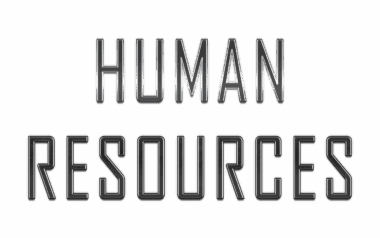Innovative Approaches to Financial Sector HR Community Engagement
The financial sector is evolving rapidly, necessitating innovative approaches to human resource management. Engaging HR professionals within this sector is crucial for fostering community spirit and collaboration. One effective method is the creation of online platforms that facilitate knowledge sharing and best practices among HR professionals. These platforms can feature discussion forums, webinars, and resource libraries to provide members with the latest trends and insights. Utilizing technology, companies can host virtual events and workshops, allowing for widespread participation regardless of geographic constraints. Moreover, social media groups can serve as informal networking spaces where HR practitioners discuss challenges and solutions. By promoting active participation online, organizations can build lasting relationships among members, increasing engagement. Furthermore, periodic newsletters can keep community members informed about upcoming events, changes in regulations, and essential readings in HR. The combination of digital tools and personal outreach creates a cyclical model of community interaction and knowledge sharing. To maintain momentum, consistent updates and feedback from members should be encouraged to ensure the community continues evolving in response to members’ needs.
A second innovative approach to financial sector HR community engagement is the implementation of mentorship programs. These programs connect experienced HR professionals with newcomers in the field, providing them the guidance needed to navigate their careers. By establishing a structured mentorship program, organizations can foster professional growth and community building. Mentors can share their insights on navigating industry-specific challenges, focusing on critical skills required in the financial sector. Additionally, mentorship encourages knowledge transfer, ensuring that valuable lessons are not lost to attrition. Regularly scheduled check-ins between mentors and mentees help maintain accountability and foster meaningful relationships. These sessions can include goal-setting discussions, detailed performance reviews, and identifying opportunities for skill development. Beyond one-on-one interactions, organizations can also establish group mentorship events featuring panel discussions or roundtables. Such settings permit a wider range of perspectives, inviting open dialogue and collaboration. The resulting network of support can often empower HR professionals to confidently tackle complex issues faced within their organizations, ultimately enhancing the overall development of the HR community.
Utilization of Workshops and Training Sessions
Workshops and training sessions serve as powerful tools for fostering engagement among HR professionals in the financial sector. These gatherings provide opportunities for networking and collective skill enhancement within a structured environment. When designed effectively, workshops can address pressing industry topics, ensuring participants leave with actionable insights. For instance, topics might include compliance with financial regulations, new recruit onboarding practices, or diversity and inclusion strategies specifically tailored for financial environments. Collaboration with experienced facilitators enhances the value of these sessions, bringing in external expertise while maintaining relevance to current practices. To maximize participation, organizations should promote workshops across multiple channels, including internal communications and social media platforms. Leveraging testimonials from past participants can boost interest and attendance. Furthermore, incorporating interactive elements, such as breakout sessions or team projects, ensures skill application and provides hands-on experience. Post-event surveys can capture feedback, allowing organizers to refine future offerings to better meet participant needs. The net result fosters shared learning experiences and drives the overall professional growth of attendees, cultivating a stronger HR community.
In addition to workshops, creating a financial sector HR community through experiences like team-building activities can significantly enhance engagement. These activities enhance interpersonal relationships among HR professionals while boosting morale. Fun, social events can break down barriers and encourage collaboration outside the traditional office environment. Activities may include charity fundraisers, sports tournaments, and themed gatherings that promote teamwork and camaraderie. Incorporating fun into networking helps establish a sense of camaraderie, paving the way for future collaborations. For example, organizing a charity event allows HR professionals to contribute to a cause while connecting with colleagues on a deeper level. Furthermore, such gatherings offer opportunities for leaders to share their experiences and wisdom in a more relaxed atmosphere. These informal settings allow conversations to flow more naturally, often leading to valuable insights and shared strategies. Ultimately, prioritizing such community-building experiences contributes to heightened job satisfaction, reinforcing a sense of belonging among members. When HR professionals feel valued and connected, they become more engaged in their roles, directly impacting the overall organizational culture.
Networking Events and Knowledge Sharing
Networking events can be particularly effective in promoting engagement within the financial sector HR community. These events often provide a dedicated space for professionals to connect, share ideas, and collaborate on common challenges. An effective networking event should prioritize inclusivity, ensuring that all participants feel welcomed regardless of experience level. Hosting panel discussions with industry leaders can stimulate dialogue while providing attendees with invaluable insights. Additionally, breakout sessions that encourage smaller group discussions can help participants make meaningful connections while tackling specific challenges within HR. By fostering an environment of knowledge-sharing, organizations support a culture of continuous learning and improvement. Furthermore, incorporating social elements like casual gatherings post-event can enhance networking opportunities. Encouraging communication beyond structured formats leads to lasting professional relationships. To ensure the effectiveness of these networking opportunities, organizations must follow-up with participants, providing them access to presentation materials and contact information. Encouraging feedback helps improve future events, ensuring they best serve the community. A continuous cycle of engagement can profoundly impact professional development, contributing to a vibrant HR community within the financial sector.
Acknowledging the importance of diversity and inclusion within the HR community is another innovative approach to fostering engagement. Organizations should actively promote diverse recruitment strategies to draw a wide range of perspectives and experiences within their teams. This commitment goes beyond numbers; it must permeate the organizational culture, with leaders advocating for inclusive practices. Training sessions that educate HR professionals on unconscious bias and cultural competency can promote understanding and sensitivity within teams. Moreover, hosting events that celebrate diverse cultures within the workplace provides a platform to acknowledge and appreciate differences. Sharing success stories from diverse professionals can further inspire others, creating a ripple effect within the community. By prioritizing inclusiveness, HR professionals can create an environment that attracts and retains talent from various backgrounds. Building diverse teams leads to innovative ideas and solutions, ultimately benefiting the financial sector as a whole. Moreover, such environments encourage collaboration and larger networks, enhancing overall community engagement. Committing to diversity and inclusion strengthens the HR community while fostering a culture where everyone feels valued and empowered to contribute.
Future Trends in Financial Sector HR Engagement
Looking ahead, the future trends in financial sector HR community engagement will likely lean towards technology integration and virtual interactions. The rise of remote work necessitates innovative solutions to keep HR professionals engaged and connected. Organizations can embrace virtual reality (VR) and augmented reality (AR) technologies to foster immersive networking experiences. For instance, hosting virtual conferences with breakout rooms can replicate in-person interactions while reducing travel barriers. As these technologies advance, they will likely enable more engaging, interactive sessions that closely mirror real-life experiences. Additionally, organizations must remain agile, adapting to shifts in talent preferences and industry demands. Regularly assessing community needs is vital to ensure the initiatives they implement are relevant and impactful. Collecting data through surveys and analytics can inform decisions, helping organizations tailor their offerings accordingly. Ultimately, the future of financial sector HR community engagement will thrive on flexibility and innovation. Creating meaningful connections, driving professional growth, and fostering collaboration will remain central to successful community-building efforts. By embracing these future trends, HR professionals will be better equipped to navigate challenges and seize opportunities in an evolving landscape.
In conclusion, innovative approaches to financial sector HR community engagement are vital for fostering collaboration and improvement within the industry. Through various strategies such as online platforms, mentorship programs, workshops, networking events, and inclusive practices, HR professionals can build a strong, interactive community. Emphasizing diversity and inclusion further enriches this community by attracting diverse perspectives and promoting a culture of belonging. Looking towards the future, leveraging technology and enhancing knowledge-sharing opportunities are fundamental to maintaining engagement. Organizations must remain responsive to community needs while fostering relationships that empower HR professionals. By embracing these innovative approaches, financial sector organizations can establish vibrant HR communities that drive industry excellence and workforce satisfaction. Commitment to ongoing engagement facilitates the professional growth of its members while enhancing organizational culture. Overall, financial sector HR community engagement stands at the forefront of transformation, allowing professionals to connect, collaborate, and excel. As the financial landscape continues to evolve, the initiatives outlined in this article serve as a foundation for a community poised for success.








